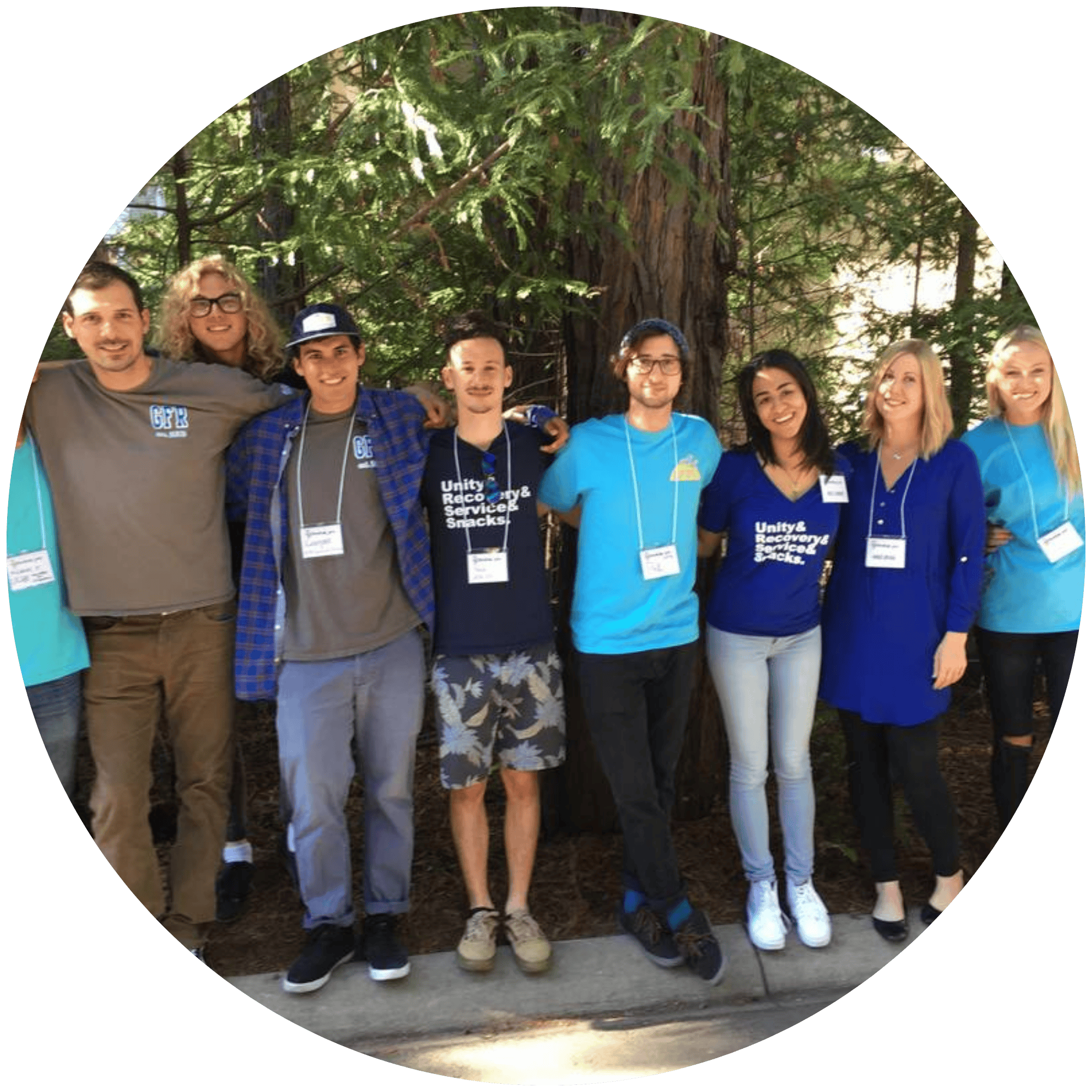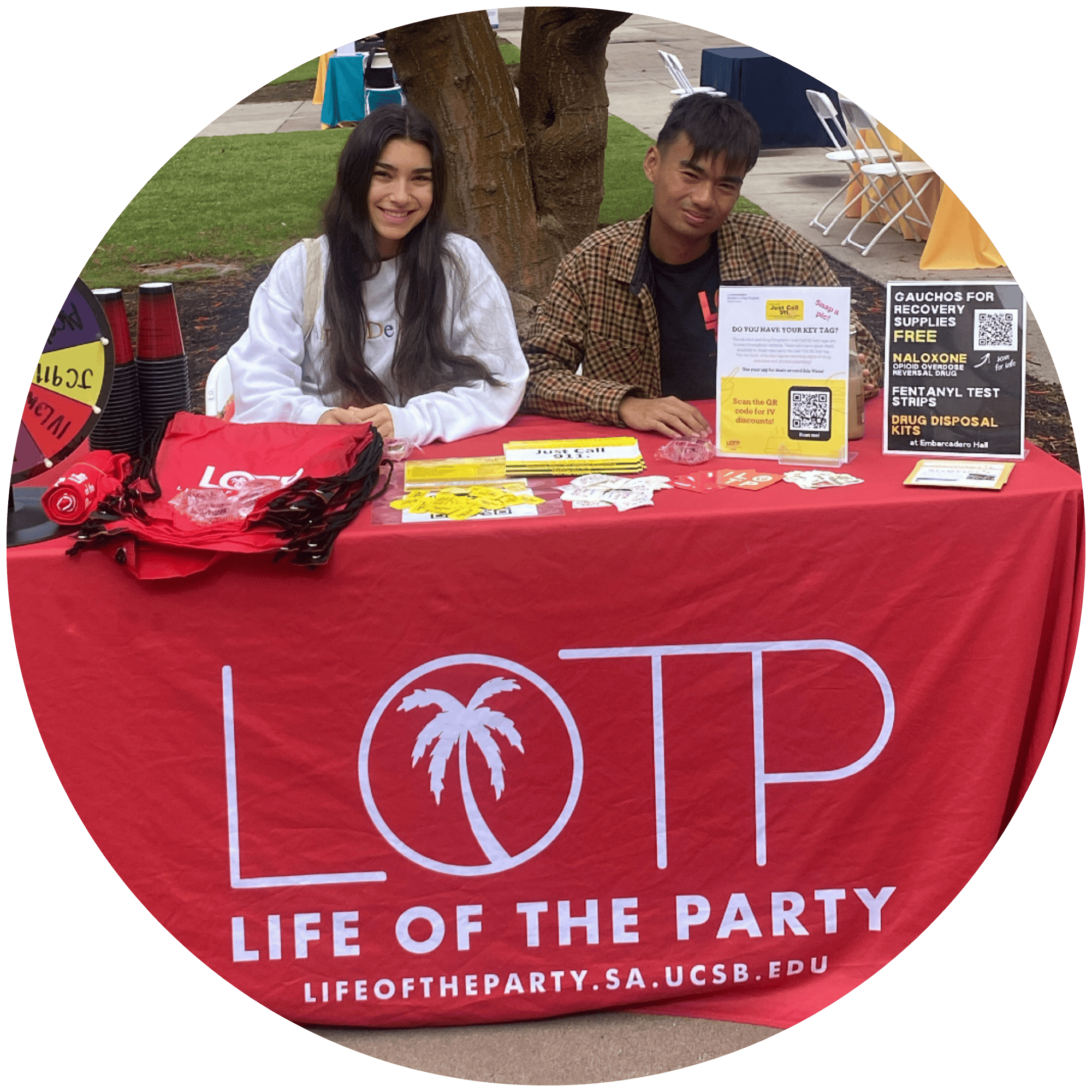Health and Wellness aims to empower students in making informed decisions around addictive behaviors and recovery (ABR) through education and alternative programming events. We work in partnership with many campus departments to provide students with safe, alcohol-free social options throughout the quarter.
What would you like to learn more about?
Addictive Behaviors & Recovery (ABR)
The Department of Health & Wellness provides education, prevention, and recovery support as part of the ABR program. These services are designed to build a campus culture that supports wellbeing, informed decision-making, and recovery.
Gauchos for Recovery (GFR) is a peer-driven program that offers a safe, supportive, and engaging environment for students in or seeking recovery from substance use or other addictive behaviors. GFR supports students pursuing any recovery pathway they choose, as well as those affected by the substance use of friends or loved ones. The program fosters a recovery-ready campus through six key elements: a community of supportive peers, recovery-oriented meetings and events, leadership and service opportunities, a recovery-friendly space, peer and professional support, and harm-reduction services.
Life of the Party (LOTP) is a student-led initiative that focuses on harm reduction and prevention. The program promotes safer partying, informed decision-making, and the creation of alcohol and drug-free social events that help students connect and thrive in healthy, supportive environments.
Learn more about these resources here! We are dedicated to providing all students with a free, confidential, and safe place to discuss anything related to substance use and/or other addictive behaviors.


Complementing H&W's recovery and prevention resources, clinical services related to alcohol, cannabis, nicotine, other substances, gaming, gambling, screen use, pornography, and other addictive behaviors are now offered through Counseling & Psychological Services (CAPS). Licensed therapists provide free, confidential counseling for UCSB students who are self-referred, referred by others, or concerned about someone else. ABR clinical services use evidence-based, harm-reduction approaches to support healthy choices, reduce high-risk behaviors, and connect students with additional resources on and off campus. Free nicotine-cessation support, including gum, lozenges, and patches, is also available.
Learn more or request an appointment at
CAPS ABR Website
Social Norms Campaign
With top rankings and multiple Nobel Laureates, UCSB is an elite university and a global leader in research and the sciences. However, there is a widespread and misleading stereotype that this top University is just another school with too many parties and too little serious work. This perception further perpetuates a normative college lifestyle of partying and negatively impacts our campus culture and reputation.
At every University, student well being is dependent on choices that lead to healthier and happier lives, and informed decisions to prevent alcohol and drug misuse. Real data on what students are actually engaging with and experiencing allows for choices rooted in responsible use, not based on pressure from what students think their peers are doing.
To help shift the culture, Health & Wellness peer educators developed a social norms campaign to address the incorrect assumption; all students party and that they all party hard. We used data from the National College Health Assessment, a research survey that collects precise data about students’ health habits, behaviors, and perceptions. This survey, administered by our department every two years, sheds light on our UCSB students' lived experiences and informs our programming.
What are Social Norms?
A social norm is a cognitive representation of the thoughts, feelings, or behaviors that people in a group share and accept as correct in a given situation. What people do in action is often influenced by what they think their peers are doing. In some cases, a social norm can be misread and lead to pluralistic ignorance; when the majority of members in a group publicly conform to a misperceived norm, assuming incorrectly that everyone else accepts it.
Why a Social Norms Campaign?
The social norms approach can be used to counter misperceptions and pluralistic ignorance and promote positive behavior. Since behavior is often based on misperception of norms, we can change behavior by giving people information about the real norm. Instead of focusing on the negative behavior, social norms campaigns use statistics to focus on the more positive behaviors. Previous studies have found that social norms campaigns are effective in reducing high-risk drinking behavior and at increasing the use of protective behaviors.
Over the past 10 years, there have been a number of positive changes in the disruptive habits and behaviors regarding alcohol and drugs at UCSB. We hope to keep or boost this momentum through our social norms campaign. Check out the videos below to see what students are saying about alcohol and other drug norms at UCSB.
Smoke & Tobacco Free Ambassadors
The Smoke-Free & Tobacco-Free program is a UC wide initiative with the aim of decreasing exposure to secondhand smoke, changing tobacco use behavior, decreasing tobacco litter on campus, promoting student success, and decreasing exposure to new and emerging tobacco and nicotine products (vaping, etc.).
Our ambassadors are students committed to supporting these initiatives by doing weekly rounds across campus, talking with student smokers and connecting 1-1 in a personal way, while reminding them of the policy and planting the encouraging seed that they too could live a nicotine-free life in the future. Our ambassadors are trained to explain the UCSB and California cessation resources that increase a person's chances of being nicotine-free. They also run an Ambassadors club that focuses on environmental awareness and action, building friendships, and addressing nicotine issues.

Library Guide for Wellbeing
For FREE additional readings and resources on alcohol & other substances, check out our UC Santa Barbara Library Well-being LibGuide. Here you can find curated books and more on this health topic that you can download and read on your computer or mobile device... FREE!
Here are some of just the many books offered at our LibGuide!
